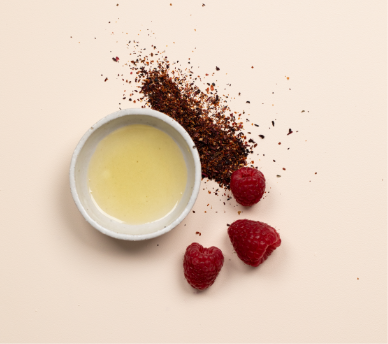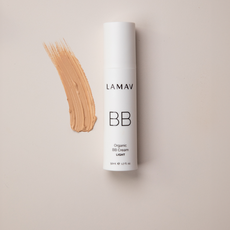The Role of Vitamin C in Health and Skincare
Vitamin C, also known as ascorbic acid, is one of the most well-researched and celebrated nutrients in both health and skincare communities. As a potent antioxidant, it plays a critical role in protecting the body against oxidative stress, supporting the immune system, enhancing skin health, and improving the body’s ability to absorb essential nutrients like iron.
In this in-depth guide, we’ll explore the numerous evidence-backed benefits of Vitamin C, why it’s a daily essential for your body and skin, how to incorporate it through diet and skincare, and answer the most common questions about this versatile nutrient.
5 Ways Vitamin C Benefits Our Health
Wielding the power to boost our health and wellbeing in more ways than one; vitamin C is a nutrient we simply cannot underestimate. Ranging from the benefits of vitamin C for the skin to its ability to fight off colds and enhance our immune system, we can’t thank this simple nutrient enough! Today, we’re going to learn how to effortlessly unlock these vitamin C benefits by digging into the various roles the nutrient plays in our body every day.
Eager to learn more about how vitamin C benefits our skin and general health? Here are 5 key benefits of vitamin C for skin and wellbeing, along with a collection of vitamin C foods to help get your fix.
1. Boost The Immune System
Though vitamin C benefits our wellbeing in many different ways, one of the most popular advantages would be the nutrient’s relationship with the immune system. As winter rolls around each year, people often flock to their local pharmacies to stock up on vitamin C supplements to fight off the cold and flu, though have you ever wondered why?
To put it simply, vitamin C helps the immune system run properly. When the body is lacking vitamin C, some of the cells can’t do their job, compromising the immune system. So, when considering vitamin C and the common cold, the nutrient is great for prevention as opposed to actually treating the virus, so be sure to top up your vitamin C levels before winter.
When it comes to adding more vitamin C into our diets, food is king - particularly due to the accompanying fiber, vitamins, and minerals that supplements don’t offer. For example, eating an orange will deliver the body with vitamin C, as well as fiber, potassium, calcium, vitamin A and more, whereas a vitamin C supplement would typically just contain vitamin C.
2. Protect The Skin
When it comes to protecting the skin, vitamin C is considered a worthy ally. While free radicals damage our cells and cause the appearance of aging in the skin, vitamin C can protect us from some of this damage. If you’re eager to take your skin health to the next level and incorporate more vitamin C into your daily skincare routine, consider getting your hands on a serum or moisturizer rich in the nutrient.
Our skin is constantly exposed to damaging environmental elements like pollution, UV radiation, and toxins that generate free radicals—unstable molecules that break down collagen and trigger premature ageing. Regular application of Vitamin C serum can reduce redness, fade pigmentation, and improve skin texture.
LAMAV’s Daily Vitamin C Brightening Serum is ideal for enhancing skin clarity and boosting radiance.
3. Fight Iron Deficiency
Iron and vitamin C often go hand in hand, with vitamin C helping to boost the nutrient’s absorption in the gut. It’s because of this relationship that vitamin C is often found in many iron supplements. If you want to take full advantage of this in the diet, try adding more vitamin C into your iron-heavy meals. It converts iron into a more absorbable form in the gut, making it particularly important for vegetarians, vegans, and individuals with anemia.
Pairing vitamin C-rich foods like citrus fruits or strawberries with iron-rich meals such as lentils, spinach, or fortified cereals can help boost iron absorption naturally.
4. Promotes Skin Elasticity
Vitamin C is very important when it comes to making collagen - a protein of the skin that helps to deliver a firm and supple complexion. The best part? The benefits of this partnership extend far beyond the skin, with our hair and nails are also strengthening in the process. By simply eating foods packed with vitamin C or adding the nutrient into your skincare routine, you can create an ideal environment for collagen production.
Collagen is the main structural protein in the skin, essential for its firmness, elasticity, and youthful appearance. Vitamin C is required for the hydroxylation of collagen molecules—meaning it helps bind amino acids together to form strong collagen fibers.
This makes vitamin C essential not only for skin appearance but also for wound healing and tissue repair. With age, collagen production decreases, making vitamin C-rich skincare vital to counteract sagging, wrinkles, and dryness.
5. Possibly Reducing Blood Pressure
Though this one needs more evidence, some studies have shown that vitamin C can help to lower blood pressure. Since vitamin C is released from the body when we have too much of it, it’s suggested the nutrient may help to release excess fluid, lowering blood pressure.
While it’s not a substitute for medication, consistent intake of vitamin C through diet and supplements may offer a supportive role in managing high blood pressure and improving overall vascular health.
Foods High In Vitamin C
It’s easy to add more vitamin C foods into our diet, and that doesn’t just mean eating oranges, oranges, and more oranges. There’s plenty of other foods rich in vitamin C, including citrus fruits, capsicum, tomatoes, broccoli, kale, and strawberries. Similar Content: Boost Your Health with Vitamin C: Prevention, Protection, and More. Just by snacking on these foods, mixing them into a salad, or throwing them into your breakfast routine, you can begin to reap the skin and wellbeing benefits of vitamin C.
Including a variety of vitamin C-rich foods in your daily diet is essential for optimal health. Here are some of the best sources:
-
Kakadu Plum – Native to Australia, it has the highest known concentration of vitamin C—up to 100 times more than oranges.
-
Strawberries – Rich in antioxidants and fiber, great for skin and heart health.
-
Broccoli – Contains vitamin C, vitamin K, and fiber.
-
Kale – A superfood packed with nutrients including vitamin C and iron.
-
Kiwi – High in vitamin C and also supports digestion with its enzyme content.
-
Bell Peppers (Capsicum) – Particularly red peppers are loaded with vitamin C.
-
Guava – One of the richest fruit sources of vitamin C.
-
Tomatoes – Great when consumed raw or lightly cooked.
-
Pineapple – Also contains digestive enzymes like bromelain.
-
Brussels Sprouts – Best when roasted or steamed lightly to retain nutrients.
Add Vitamin C to Your Skincare Routine
Topical Vitamin C is widely regarded as one of the best ingredients for brightening skin, reducing pigmentation, and protecting against environmental stress. When choosing a product, it’s important to look for a stable form of vitamin C with good skin penetration and minimal irritation risk.
What Makes a Good Vitamin C Product?
Look for these effective forms:
-
L-Ascorbic Acid – Most potent, but less stable.
-
Ascorbyl Tetraisopalmitate – Oil-soluble and stable, ideal for sensitive skin.
-
Sodium Ascorbyl Phosphate – Gentle, suitable for acne-prone skin.
Final Thoughts
Vitamin C is a crucial nutrient with wide-ranging benefits for health, immunity, and skincare. By combining dietary intake with a targeted topical skincare routine, you can maximize its antioxidant power from the inside out.
Whether you’re looking to glow from within, boost your immune system, or combat signs of ageing, vitamin C is a simple, science-backed solution worth making a daily ritual.











